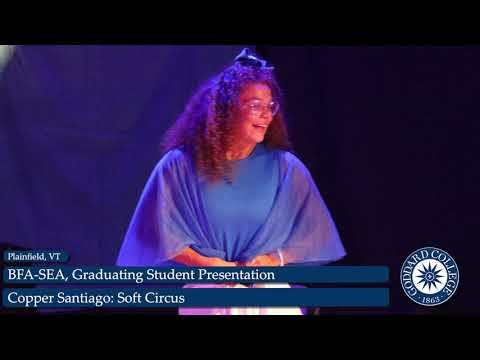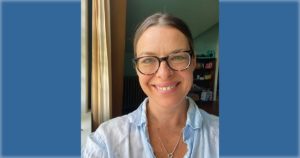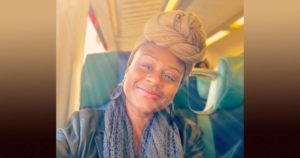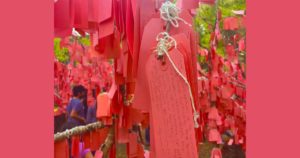by Christine Kalafus

The first day I was to lead my writing workshop, I arrived at the library early and precisely arranged eight chairs in a circle. My workshop bible: Writing Alone and With Others by Pat Schneider was next to me.
I couldn’t wait. In just a few moments my participants would arrive.
To prepare, I regularly attended workshops that practiced the kind of program I wanted to offer, one that focused on writing as therapy. I had partnered with my local hospital as Writing With Support would be a writing group for women with or recovering from cancer. It had been advertised in the newspaper and I had been on the local radio station. I was ready to go.
Twenty minutes later I sat alone in the circle of chairs.
Priscilla, the head librarian, came downstairs into the community room. “What, nobody?” she asked. The Quiet Corner of Connecticut is rural. My town has one traffic light. Maybe the advertising wasn’t sufficient? I wondered if I should go door to door.
“It will take time, I think.”
“Well, maybe people just need to be clear about your motives,” Priscilla said.
At first I couldn’t imagine what she meant. Did people think I was leading a free writing workshop as some sort of scam? My stubbornness, what I prefer to think of as entrepreneurial spirit, showed up.
“Every Monday night and Tuesday morning I’m going to be here, even if it’s just me.” If I inhabited the room maybe I could will the community in. But instead came the doubts, annoying counterparts to my natural optimism.
Who was I to be leading women in a writing practice? What were my credentials? I’d kept a journal since I was six and I was an ardent reader. I was in graduate school, but only in the first semester. I suddenly wondered if I was fooling myself. I couldn’t even get through Anna Karenina.
I am not the only woman who ever had cancer. Beyond my own experience what did I really know? So what if I had cancer and taken care of newborn twins at the same time? Who cared that I survived in part by writing, alone in my basement because I could find no support group that would work around my chemotherapy appointments and the babies feeding schedule? Really, why was I doing this?
I wanted to give what I didn’t get, that’s why. But following me around town, just out of sight, was the knowledge that I hadn’t succeeded before, and maybe never would.
This was my second effort. Six years ago, I created a peer-counseling group of cancer survivors who visited cancer patients in the hospital. The oncology department supported it, and, because of a newspaper article, I had five volunteers. I’ll never forget the day we got our ID badges. We pinned them on each other and walked side by side down the hospital corridor, feeling strange but giddy; a team officially in charge of hope.
Within a few months the hospital went through a restructure, and all the oncology doctors were fired. The nurses were too busy to promote our program. Survive to Thrive slowly shrunk in size to become a box of tri-folded pamphlets tucked on a shelf under my basement stairs.
I was worried that this would be a similar experience. But I had told Priscilla I would be there. I would unlock the community room door and arranged the eight chairs. Every Monday evening from 6-7:30, and every Tuesday morning from 10:30 to noon, I sat alone and wrote the critical papers required for my Goddard degree. I left the door open.
One Monday night, after a couple of weeks, Priscilla came in. Behind her was a small woman in her seventies. She had fine features. “Christine, this is Pamela*,” Priscilla said. I immediately took the woman’s hand in mine. I felt her tiny bones in my palm. I took in her lavender felt hat and dangling bluebird earrings with fishhook clasps. Pamela had seen my flyer at the check-out desk and was curious. She was also nervous.
“I don’t have to write about my cancer, do I?”
In Pamela’s eyes, I saw my opposite. My experience – the utter frustration of cancer and caring for infants – had been too big for me. It required paper to sit on. But for Pamela, and for many women, cancer is the last thing they want to write about. I assured her that she could write about whatever she was interested in. I asked her what she liked to read. I must have said something right, or maybe it was because I was still holding her hand, but she stayed.
Pamela came back the next week, and the next. We added two more women and became a tight group. My precise plan relaxed. Most often the ladies would prefer to focus on the experience. I did my best to bring the conversation back to the writing. I handed out poems to them, and we read them together. Occasionally one of the women would write about cancer but Pamela never did. Yes, our numbers were small but the ladies told me how much they enjoyed coming. Together, we listened to each other’s writing, full of vibrant histories and often told with humor and themes of resilience and independence. I told myself this was enough. How could I know what healing looked like?
At the end of class last week, after six months of writing together, Pamela stood patiently waiting for the others to leave. When we were alone she said, “I think I’m ready to write about my cancer now. Would that be OK?”
What I felt was too big for just one emotion. Moments later, after we had walked outside together, I got in my car. I smiled while I cried, driving past snow covered corn fields. At the edges were thin strips of green grass.
*Not her real name
 Christine Kalafus is a writer, artist and serial home remodeler. If she isn’t writing, she’s painting, and when the mood strikes she moves all the furniture around. In 2014 Christine founded Writing With Support, a series of writing workshops for those surviving cancer. She reads her work locally, has appeared onstage at The Moth, StorySLAM: Boston and is an editor of the literary magazine PAGE. Currently an MFA candidate at Goddard College, she lives in Woodstock, CT and is working on a memoir. www.christinekalafus.com.
Christine Kalafus is a writer, artist and serial home remodeler. If she isn’t writing, she’s painting, and when the mood strikes she moves all the furniture around. In 2014 Christine founded Writing With Support, a series of writing workshops for those surviving cancer. She reads her work locally, has appeared onstage at The Moth, StorySLAM: Boston and is an editor of the literary magazine PAGE. Currently an MFA candidate at Goddard College, she lives in Woodstock, CT and is working on a memoir. www.christinekalafus.com.







